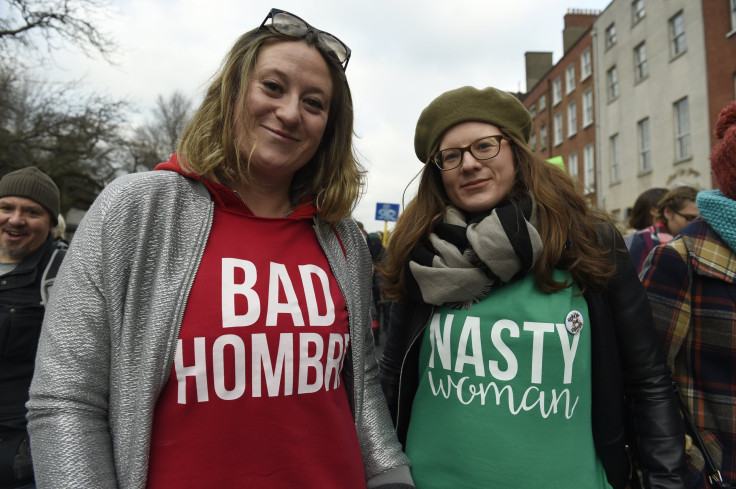Women's March Live Stream: How To Watch 'Pussy' Power Donald Trump Protest In Washington, DC

Hundreds of thousands of Americans celebrating women's rights gathered in Washington, D.C., Saturday to challenge the Donald Trump White House on its second day in power. Women wore pink "pussy" cat hats in reference to a video that circulated during the campaign where Trump could be heard bragging about grabbing women by the vulva.
Can't be there but want to participate? The Women's March website will live stream the event Saturday, while Democracy Now also will carry a feed starting at 10 a.m. EST until 3 p.m.
More than 600 "sister marches" were slated to take place across the nation, including in Boston, New York, Chicago and Los Angeles. Meanwhile, protesters were expected to take up the cause with marches in Sydney, Berlin, London, Paris and Cape Town, South Africa.
In Sydney, more than 5,000 people showed up to protest at Martin Place, yelling chants such as "women united will never be defeated" and "when women's rights are under attack, what do we do, stand up, fight back." Some carried signs that read "Girl Power vs. Trump Tower" and "Dump the Trump."
In Rome, women showed up at the Pantheon with signs such as "Yes we must" and "Women's rights are human rights." Katy Rea, who attended a march in Berlin, told CNN: "There are around 1,000 people. Lots of families, children. Very friendly atmosphere. Some police are present, but it's tame and relaxed." London Mayor Sadiq Khan posted a tweet praising women looking to join local demonstrations and "show how much we value the rights every woman should have."
The Women's March on Washington was expected to begin at 10 a.m. ET near Capitol Hill less than 24 hours after Trump was sworn in on Inauguration Day. Janelle Monae, Maxwell and Angelique Kidjo were booked to perform at the event and Katy Perry, Zendaya, Grimes, Lena Dunham and St. Vincent, among others, promised to attend and show their support.
It was unclear how many white women would be taking part in the event versus people of color.
"This march was initially put together by white women, and a lot of women of color felt they weren't part of the conversation," Carmen Perez, one of the march's national organizers, told NPR. "We can't continue to work in isolation. We can't continue to be one-dimensional. We have to make sure that we look up, that we begin to really coordinate our efforts."
© Copyright IBTimes 2024. All rights reserved.












